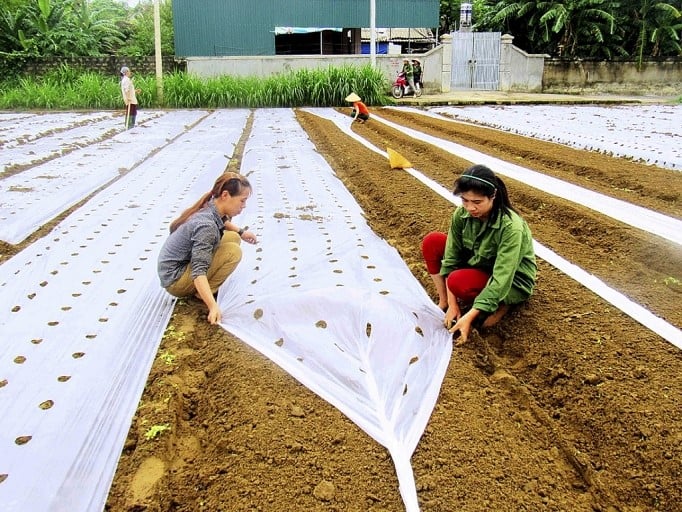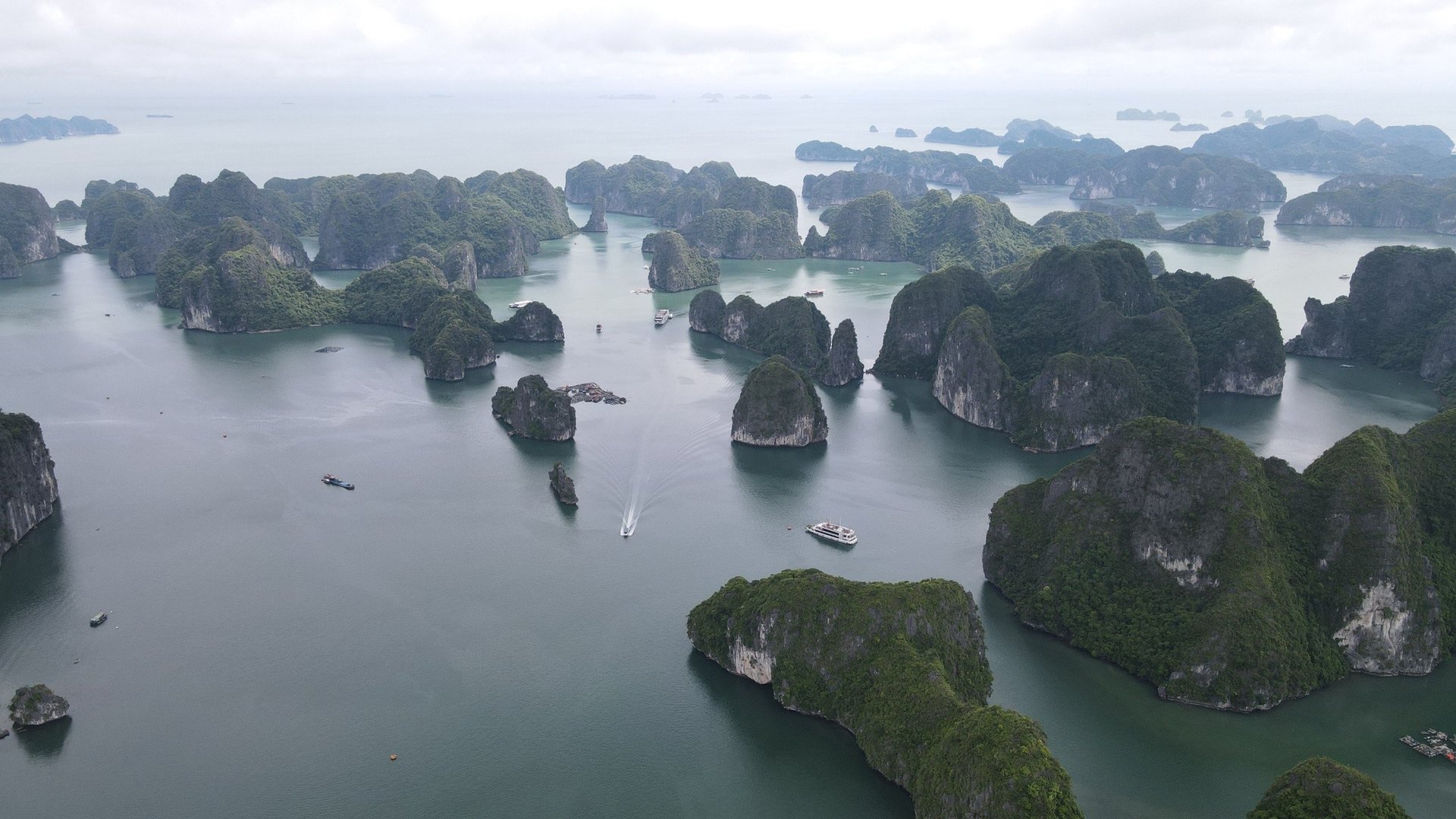June 15, 2025 | 13:29 GMT +7
June 15, 2025 | 13:29 GMT +7
Hotline: 0913.378.918
June 15, 2025 | 13:29 GMT +7
Hotline: 0913.378.918
Regarding agriculture, the government's policy toolkit on green growth will mainly consist of a combination of regulations, support policies, and research and development (R&D) aimed at enhancing eco-friendly agricultural production and output. How the optimal policy instrument will be chosen depends on the economic, environmental and social objectives, the agricultural system and the political economic context to which the instrument will apply.
Regulation is one of the key levers that governments can use to promote green growth in agriculture, including regulations on land management and water use, chemical inputs, quality and food safety as well as animal welfare.
Most government policies are based on the need to correct market failures while taking public welfare rather than just taking private welfare into account. Regulations are the most common public policy tool, forcing markets and producers to pay the public costs of harmful “externalities” such as pollution and natural resource degradation in agriculture and other sectors.
Developed countries impose a complex set of regulations to prevent negative environmental impacts from agricultural activities. These include limits on production intensity, use of chemicals and pesticides, and generation of pollution and waste. Stricter regulations tend to be applied in areas with a higher environmental or resource conservation value.

Organic production is becoming a trend among countries worldwide. Photo: VAN.
Standards for agro-products are relevant tools to motivate producers to change production methods and remove less sustainable products from the market. Government standards for food products may require reduced inputs of fertilizers, pesticides and other chemicals.
Other standards address the storage and handling of food products, product labeling and animal welfare. In the interest of human health, governments can also require foods to contain certain nutrients achieved by product enrichment and fortification.
Environmental regulations and standards may require increased investment to comply with production and processing rules, increasing production costs and affecting competitiveness in the short term. The impact of regulatory costs on farmers can be reduced through improved management and technology.
In the long run, environmental regulations and standards will enhance farm welfare by improving productivity and ecological efficiency through cleaner production processes and improved resource management techniques.
However, public requirements for agricultural producers to reduce emissions and conserve water and natural resources may not be enough to the growing environmental concerns. Strategic green growth in agriculture involves strengthening regulations and standards to ensure that agricultural producers absorb a greater degree of environmental costs.
Governments provide support or subsidies to farmers and agribusinesses to manage the supply of agricultural goods, influence prices, increase producer’s income, and achieve other social and environmental goals.
Payments based on input and resource constraints are generally beneficial because they help reduce agricultural pressures on the environment. These include support for farming systems and practices that conserve environmentally sensitive land and biodiversity, maintaining control of flood, drought or soil erosion, and providing greenhouse gas sinks and carbon storage.
However, green support for agriculture is no longer effective and is offset by the negative environmental impacts of support policies on input linkages and production linkages. Price supports for agricultural commodities hide market signals from producers and encourage intensification of production, reflected in higher levels of fertilizer and pesticide inputs, which result in adverse impacts on the environment, soil quality and biodiversity. While some countries have taken clear steps to decouple support from output and prices, others are seriously lagging behind.
For the past decade, domestic price supports have largely been replaced by direct payments based on historical entitlement levels or farm income that may or may not require production. Payments that do not require production and are based on factors other than output (e.g. acreage, animals, receipts or income) now account for more than one-third of total support to producers. These supports are mainly aimed at increasing farm income with moderate production. Payments push agricultural producers to adopt specific farming practices such as planting trees or changing tillage practices in ways that can contribute to reducing climate change or flood risks.

Cat Ba Archipelago, Vietnam was recognized by UNESCO as a World Natural Heritage in September 2023. Photo: VAN.
Some countries offer conditional support to manufacturers that follow specific production practices in pursuit of broader environmental goals. Environmental cross-compliance may be required, with policies acting as incentives to meet regulatory requirements or parts of voluntary programs.
The green growth policy toolkit promotes a transition from environmentally harmful supports towards environmentally beneficial payments.
These adjustments will improve the performance of environmental investments and make farm support measures a more effective means for green growth. Environmental regulations in agriculture will prove to be more effective by reducing the negative ecological impact of farm support. Changes in the structure of agricultural subsidies will generally reduce the costs of achieving environmental goals.
Translated by Samuel Pham
/2025/06/12/3721-2-202745_83.jpg)
(VAN) TH made an impression at Seoul Food 2025 with its line of natural beverages, paving the way for Vietnamese food products to enter the South Korean market.

(VAN) Soc Trang's success in rice exports stems from a strategy of developing fragrant and specialty rice cultivation areas and standardizing production toward low-emission practices.
/2025/06/11/1311-5-120811_839.jpg)
(VAN) The pig farming industry is facing the challenge of comprehensive restructuring to meet requirements for quality, safety, traceability, and market expansion both domestically and for export.

(VAN) Vietnam considers participating in ALGROALBA in order to expand agricultural production, coordinate the assessment and effective exploitation potential land.
/2025/06/05/5314-1-184727_407.jpg)
(VAN) From seemingly worthless fish scales and skin, enzymes and lactic ferments can transform by-products into peptides, opening a sustainable, effective business direction and elevating Vietnamese seafood.

(VAN) TTC AgriS and IFC signed a strategic partnership to develop a sustainable agricultural value chain, aiming to achieve the Net Zero target by 2035.

(VAN) Seafood by-products are opening a new path, combining green growth and technological innovation to enhance the industry's value.